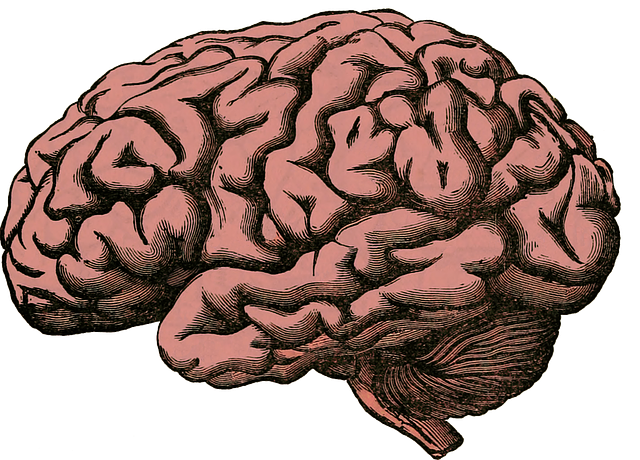Depression, a serious mental health issue, requires proactive strategies like those offered by Englewood American Sign Language Therapy (EASLTH) for deaf or hard-of-hearing individuals. Early intervention, education, and healthcare provider training are vital. EASLTH breaks language barriers through sign language, promoting open communication and accessible support systems to reduce stigma. They emphasize lifestyle adjustments such as exercise, balanced diet, sleep, mindfulness, and nature time. The therapy creates visual expression opportunities, fosters community, and encourages coping mechanisms beyond traditional talk therapy, making it a holistic approach to depression prevention and management.
Depression affects millions, but with proactive strategies, prevention is achievable. This article explores comprehensive approaches to safeguard mental health, focusing on early intervention, lifestyle adjustments, and the unique contribution of Englewood American Sign Language Therapy. By understanding depression’s impact and recognizing signs, we can foster resilience and promote well-being. Adopting healthy habits alongside specialized therapy offers a multi-faceted prevention strategy for those at risk.
- Understanding Depression and Its Impact
- Early Intervention: Recognizing Signs and Reaching Out
- Lifestyle Adjustments for Mental Well-being
- The Role of Englewood American Sign Language Therapy in Prevention
Understanding Depression and Its Impact

Depression is a complex mental health condition that significantly impacts an individual’s daily life and overall well-being. It goes beyond temporary feelings of sadness or loneliness, characterized by persistent low mood, loss of interest in activities once enjoyed, changes in appetite and sleep patterns, fatigue, and even thoughts of self-harm. Englewood American Sign Language Therapy recognizes the unique challenges faced by individuals who are deaf or hard of hearing when accessing mental health services.
Effective prevention strategies are crucial to addressing depression, especially considering its far-reaching consequences. The Stress Management Workshops Organization emphasizes the importance of early intervention and education. Healthcare Provider Cultural Competency Training plays a vital role in ensuring professionals can recognize and address depression sensitively and effectively, tailored to individual needs. Moreover, Risk Management Planning for Mental Health Professionals is essential to creating safe and supportive environments, especially with the increasing demand for accessible and culturally responsive mental health services.
Early Intervention: Recognizing Signs and Reaching Out

Early identification and intervention are crucial in the battle against depression. Recognizing the subtle signs and symptoms can be a game-changer for individuals struggling with their mental health. The first step is to foster open communication, especially within communities where language barriers might exist, such as those reliant on Englewood American Sign Language Therapy. By promoting understanding and accessibility, we can ensure that no one feels isolated in their struggle.
Encouraging friends, family, or peers to reach out and support individuals showing signs of depression is essential. This involves not only being observant but also adopting effective communication strategies, like active listening and empathy, to create a safe space for expression. Additionally, focusing on emotional regulation techniques and self-esteem improvement can empower people to seek help early, potentially preventing the escalation of depressive episodes.
Lifestyle Adjustments for Mental Well-being

Englewood American Sign Language Therapy offers valuable insights into lifestyle adjustments that can significantly contribute to mental well-being. Adopting healthy habits like regular exercise, a balanced diet, and adequate sleep plays a crucial role in mood management. Physical activity releases endorphins, which act as natural mood boosters, while nutritional foods provide essential vitamins and minerals supporting overall brain health.
Additionally, engaging in self-care practices such as mindfulness meditation, journaling, or spending time in nature can help with emotional regulation. These activities promote relaxation, reduce stress, and foster a sense of calm. Incorporating sign language therapy into one’s routine further enhances communication about feelings, providing an additional layer of support for those dealing with depression.
The Role of Englewood American Sign Language Therapy in Prevention

Englewood American Sign Language (ASL) Therapy offers a unique and powerful approach to depression prevention, focusing on communication and community. This therapeutic method isn’t just about words; it empowers individuals to express their emotions, thoughts, and experiences in a visually rich and non-verbal way. By utilizing ASL, therapists create a safe space for clients to build inner strength and develop coping mechanisms that go beyond traditional talk therapy. The visual nature of ASL can be especially beneficial for those who find verbal expression challenging or for individuals experiencing trauma, as it provides an alternative avenue for emotional release and healing.
Incorporating ASL therapy into prevention strategies also fosters a sense of community among participants. Learning a new language together creates bonds and encourages support networks, which are vital for maintaining mental wellness. Additionally, engaging in ASL can be a form of self-care, promoting creativity and serving as a creative outlet for individuals to process their feelings. With its emphasis on communication, inner strength development, and trauma support services, Englewood ASL Therapy offers a holistic method to empower individuals in their journey towards preventing and managing depression.
In conclusion, preventing depression involves a multi-faceted approach. By understanding its impact and recognizing early signs, we can foster mental well-being through lifestyle adjustments. Furthermore, the integration of strategies like those offered by Englewood American Sign Language Therapy plays a crucial role in navigating this complex issue. Remember that, with the right support, it’s possible to enhance resilience and promote a brighter, more balanced life.














